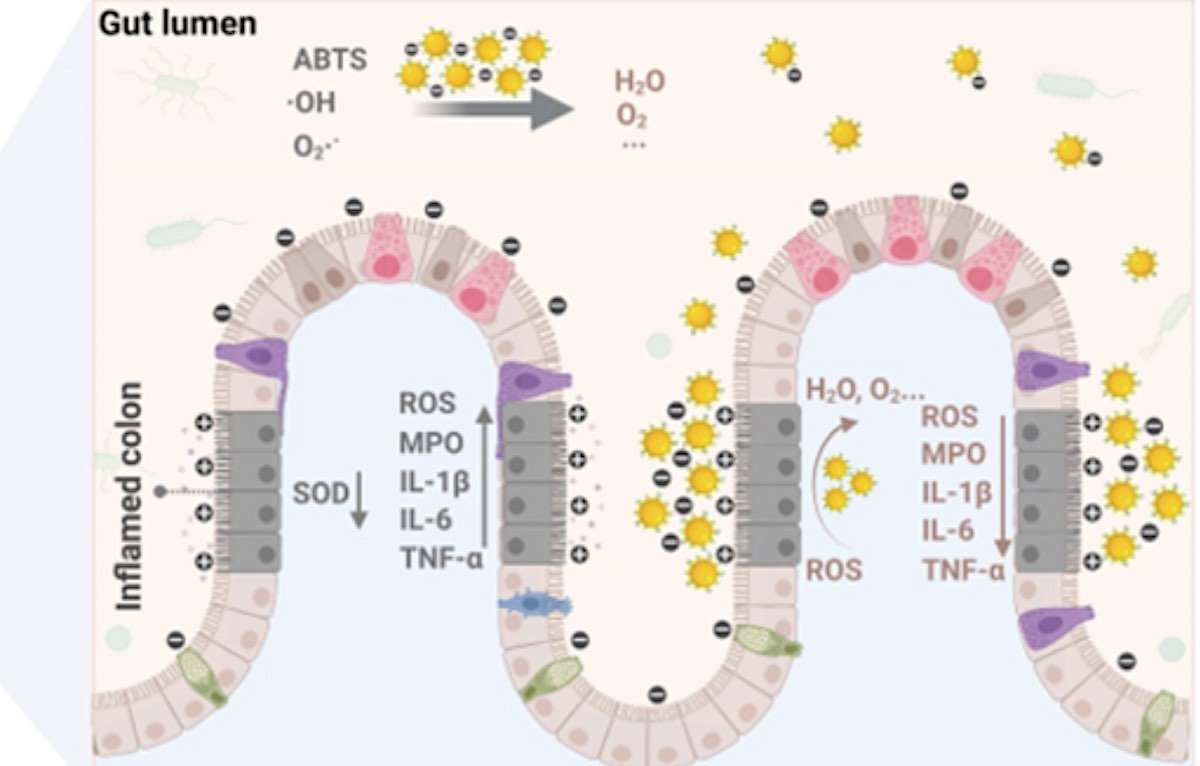Cheap, Single-Dose Rabies Vaccine Passes Phase 1 Trials-Could Save Thousands of Lives
Strong immune responses against rabies were seen in 9 out of 12 study participants, with the remaining three having taken very lose doses.

Gold could hold the key to treating inflammatory bowel disease, according to new research.
The debilitating condition, which includes both Crohn's and ulcerative colitis, has no cure, and can prove fatal in some cases.
The main treatments for the disease are drugs such as aminosalicylic acid preparations and corticosteroids, which can cause anaemia and intestine problems.
But researchers in China found that tiny gold particles can reduce inflammation in the intestine within just 24 hours.
Earlier studies have shown these tiny gold particles, or nanoclusters, effectively eliminate reactive oxygen species, which are the cause of damage to DNA, RNA, and proteins in a cell.
High levels of reactive oxygen species are often found in the intestines of people with inflammatory bowel disease.
The team found that administering the gold orally to mice suffering from colitis totally eliminated reactive oxygen species, boosted antioxidant levels, and helped stop inflammatory cytokines from emerging.
Additionally, there were no obvious side effects.
The team found the gold particles are cheaper, more stable, and easier to use than existing treatments.
Their easy storage is not affected by pH, temperature, or the solution medium, and their physiological stability and resistance to acid meant they could target the inflamed part of the intestine.
"Au25 (gold) nanoclusters offer a promising strategy in the research field of nanomedicine therapy for inflammatory bowel disease," said study author Fei Wang from The Seventh Affiliated Hospital of Sun Yat-Sen University in China.
"We believe this study demonstrates their value as a scientific basis and experimental basis for the clinical treatment of inflammatory bowel disease.
"The fact that these nanoclusters can be administered orally means there is no need for invasive procedures."
The findings were published in the journal Fundamental Research.
SHARE The Valuable Research With IBS Patients on Social Media…
Be the first to comment